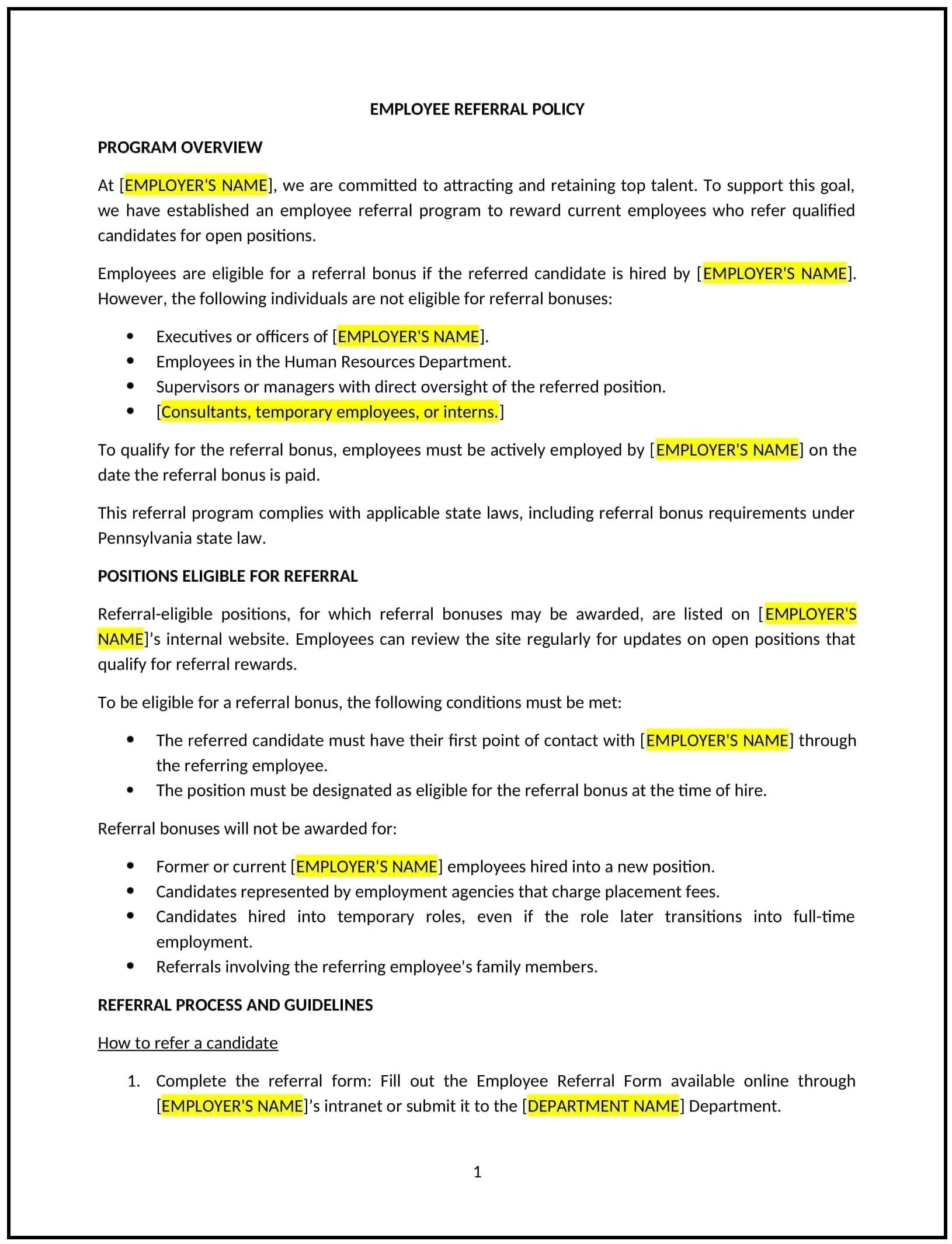Employee referral policy (Pennsylvania): Free template
Got contracts to review? While you're here for policies, let Cobrief make contract review effortless—start your free review now.

Customize this template for free
Employee referral policy (Pennsylvania)
This employee referral policy is designed to help businesses in Pennsylvania create a structured program for employees to refer potential candidates for open positions. Whether addressing hiring needs in specific industries or fostering employee engagement, this template outlines clear guidelines for managing referrals and rewarding successful hires.
By using this template, businesses can enhance recruitment efforts, strengthen workplace culture, and reduce hiring costs.
How to use this employee referral policy (Pennsylvania)
- Define program eligibility: Clearly outline which employees and positions are eligible for the referral program, such as full-time roles or specific departments.
- Establish referral rewards: Specify the rewards or incentives employees will receive for successful referrals, such as monetary bonuses, gift cards, or extra time off.
- Outline submission procedures: Provide instructions for submitting referrals, including required documentation or forms, and where to send them.
- Include reward criteria: Detail the conditions for receiving a reward, such as the referred candidate successfully completing a probationary period.
- Reflect Pennsylvania-specific considerations: Tailor the policy to address state-specific labor laws and industry hiring trends in Pennsylvania.
Benefits of using an employee referral policy (Pennsylvania)
A well-structured employee referral policy supports recruitment and workplace culture. Here's how it helps:
- Improves recruitment: Leverages employees’ networks to identify qualified candidates, reducing time-to-hire.
- Enhances workplace culture: Engages employees in the hiring process, fostering a sense of ownership and collaboration.
- Reduces hiring costs: Saves on recruitment expenses by tapping into internal networks instead of relying solely on external resources.
- Promotes retention: Encourages employees to refer candidates they believe will be a good cultural fit.
- Aligns with local needs: Reflects Pennsylvania’s industry trends and workforce dynamics, supporting targeted hiring efforts.
Tips for using an employee referral policy (Pennsylvania)
- Communicate the program: Share the referral program with employees during onboarding or team meetings to ensure everyone understands the process.
- Offer meaningful rewards: Choose incentives that resonate with employees and encourage participation in the program.
- Promote transparency: Clearly outline the timeline for evaluating referrals and distributing rewards to maintain trust.
- Monitor program success: Regularly evaluate the effectiveness of the referral program by tracking metrics such as the number of referrals and successful hires.
- Review periodically: Update the policy to reflect changes in Pennsylvania labor laws, workforce needs, or business priorities.